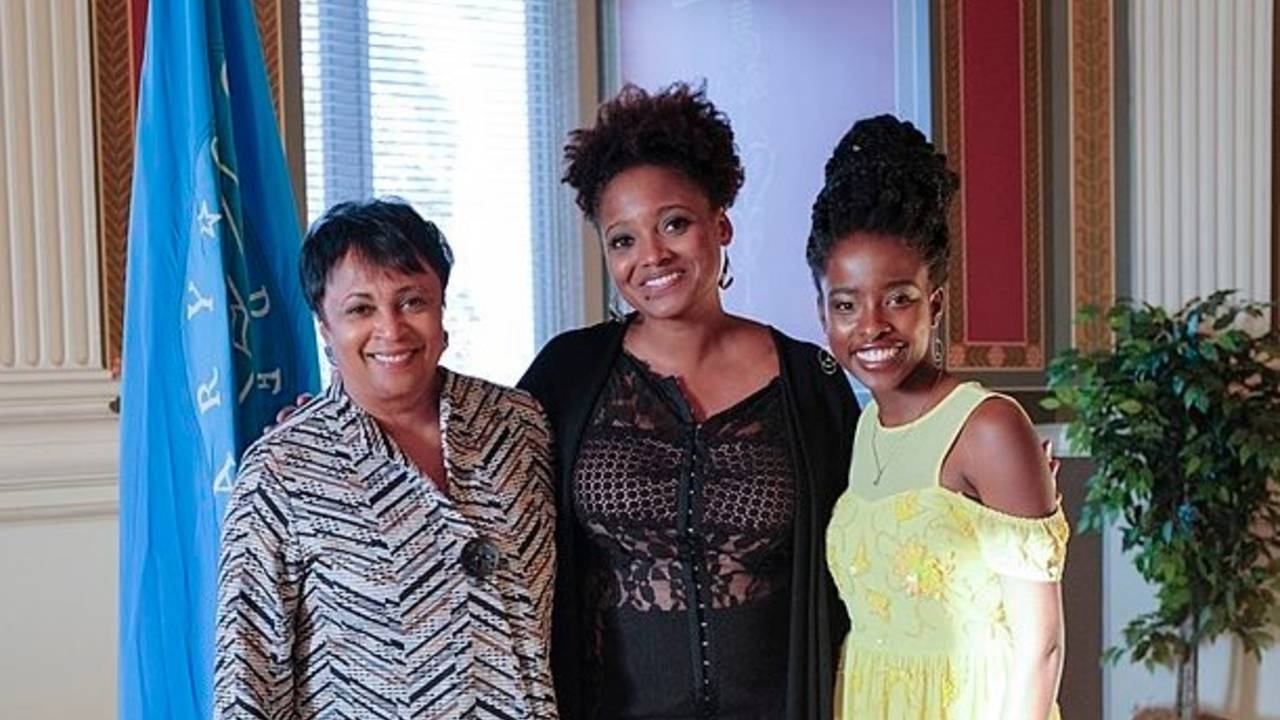Librarian of Congress Carla Hayden, Poet Laureate Tracy K. Smith, and National Youth Poet Laureate Amanda Gorman.
You’ve probably seen or heard of “Black Girl Magic”. It’s a movement that was popularized by CaShawn Thompson as a way to recognize women around the world who are persevering, despite adversity, and to celebrate their accomplishments. It’s such a powerful sentiment that Michelle Obama references it, as well as singers, athletes, and journalists. As a Black woman, I definitely believe in it, witness it daily, and think I have a healthy dose of my own Black Girl Magic that I bring into the world. One thing I’ve always yearned for is more collective Black Girl Magic. Wouldn’t that be the natural extension?
I spent the early years of my life exploring ideas of culture. How does culture work? Why do cultural groups behave in certain ways? As part of my reflection, I often observed other cultures--Jewish, Italian, Mexican, Haitian, LGBTQ+, Canadians--and wondered: Why don’t we do that? Why don’t we, Black women and Black folks in general, use some of the strategies that have worked for other cultural communities to 1) position themselves for migrating to a new country, 2) overcome genocide, 3) force industries to hear their voices and cater to us, or 4) hire and promote others who share their values and beliefs? In the middle of deep exploration of these questions, I took my first Black History course with an amazing professor, Blane Harding.
Here’s what I learned:
- The course should have been named History – period.
- The transatlantic slave trade was a helluva thing and different than anything before it.
- The absence of accurate U.S. history had resulted in me having to confront my own internalized oppression.
- It’s amazing just how much Black folks have been able to achieve given the circumstances through which we lived and were able to thrive.
- Black folks who are descendants of the transatlantic slave trade are different from any other cultural group, and therefore need to understand our experiences, identities, challenges, and future through a lens of our own.
One of the most brilliant–in the most nefarious way–elements of the transatlantic slave trade was its focus on ripping apart Black people. We were ripped away from our families and cultural traditions. We were ripped away from our homeland, our languages, our practices that reinforced a sense of purpose, place, and legacy. Enslaved African people arrived in the Americas without knowing how to communicate with each other, literally. They had no common cultural framework to inform interpersonal and group negotiations. They had no way of signifying relationships, nothing of value to trade. Nor did they have a long-term vision for the future that would incentivize establishment of the kind of cultural foundation that has benefited so many other cultural groups. They lived day to day, focusing on survival.
Fast forward to 2019, I had the great honor of listening to Nikole Hannah-Jones, a Pulitzer Prize winning investigative journalist for the New York Times and the brilliance behind the 1619 Project. She outlined in vivid detail the insidious nature of the transatlantic slave trade and masterfully wove into her presentation the unique and powerful role of Black women. She spoke about the strength of Black women through the ages, as heads of households, disproportionate representation in the military, and their contributions to the underfunded and non-glamorous work that has been the cornerstone of white and Black families, education, and healthcare. Hannah-Jones was riveting and historically accurate. She ended her speech with these words, “If you want something done right, trust Black women.” Black Girl Magic.
Now in 2020, I am watching as we, Black women, come into full focus. Yes, we’ve had powerful Black women since the beginning of humanity and all the way until this present day, but now I am experiencing another shift: we are a collective. Collectively, three Black women, Alicia Garza, Patrisse Cullors, and Opal Tometi, who founded #BlackLivesMatter, created a movement. We have become a connected, collaborative, and influential force. Black women are creating lists of Black women business owners, healthcare providers, entrepreneurs, teachers, and authors and actively sharing them with each other. We are hiring each other. We are highlighting each other’s work. We are doing what other cultures, and men, have done so well for so long. We shamelessly have each other’s back and are positioning each other for success.
I’m excited to be part of this movement, to see what we are going to accomplish together. As DJA grows we actively cultivate relationships with Black women. For those who are in decision-making positions, I encourage you to do the same. You know what they say, if you want something done right, trust Black women. #BlackGirlMagic
Click here to subscribe to our mailing list

